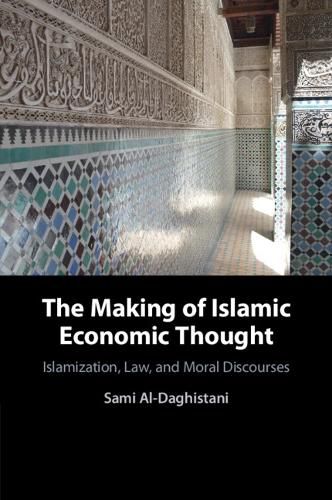Readings Newsletter
Become a Readings Member to make your shopping experience even easier.
Sign in or sign up for free!
You’re not far away from qualifying for FREE standard shipping within Australia
You’ve qualified for FREE standard shipping within Australia
The cart is loading…






Interrogating the development and conceptual framework of economic thought in the Islamic tradition pertaining to ethical, philosophical, and theological ideas, this book provides a critique of modern Islamic economics as a hybrid economic system. From the outset, Sami Al-Daghistani is concerned with the polyvalent methodology of studying the phenomenon of Islamic economic thought as a human science in that it nurtures a complex plentitude of meanings and interpretations associated with the moral self. By studying legal scholars, theologians, and Sufis in the classical period, Al-Daghistani looks at economic thought in the context of Shari'a's moral law. Alongside critiquing modern developments of Islamic economics, he puts forward an idea for a plural epistemology of Islam's moral economy, which advocates for a multifaceted hermeneutical reading of the subject in light of a moral law, embedded in a particular cosmology of human relationality, metaphysical intelligibility, and economic subjectivity.
$9.00 standard shipping within Australia
FREE standard shipping within Australia for orders over $100.00
Express & International shipping calculated at checkout
Interrogating the development and conceptual framework of economic thought in the Islamic tradition pertaining to ethical, philosophical, and theological ideas, this book provides a critique of modern Islamic economics as a hybrid economic system. From the outset, Sami Al-Daghistani is concerned with the polyvalent methodology of studying the phenomenon of Islamic economic thought as a human science in that it nurtures a complex plentitude of meanings and interpretations associated with the moral self. By studying legal scholars, theologians, and Sufis in the classical period, Al-Daghistani looks at economic thought in the context of Shari'a's moral law. Alongside critiquing modern developments of Islamic economics, he puts forward an idea for a plural epistemology of Islam's moral economy, which advocates for a multifaceted hermeneutical reading of the subject in light of a moral law, embedded in a particular cosmology of human relationality, metaphysical intelligibility, and economic subjectivity.